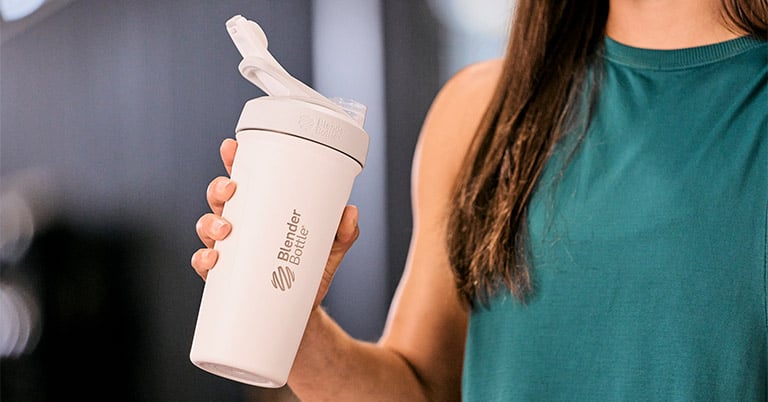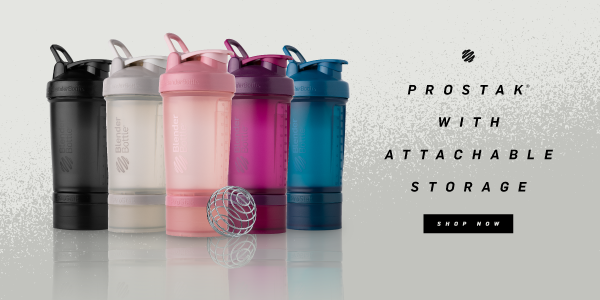Workout veterans understand that going to the gym isn't enough to make significant gains. Experienced lifters use several tactics to enhance their workout performance and achieve the best results.
One of these methods is taking pre-workout supplements. These products use a combination of ingredients to boost your energy, helping you work out for extended periods.
A pre-workout drink is typically ingested about 30 minutes before working out. Unfortunately, approximately 15 minutes later, many people experience itchy skin. Experts refer to this as the beta-alanine itch.
If you've experienced this itch after drinking pre-workout, you probably have questions. What causes this itching? Is it dangerous? Worry not we'll explain.
Why Pre Workout Makes Your Skin Itch and Tingle
Many pre-workout supplements make you itch because they contain beta-alanine. This amino acid helps improve physical function and build lean muscle mass, which makes it attractive to many lifters.
But why, exactly, does pre-workout make you itchy?
When beta-alanine enters your body, it causes neurons to fire in your brain that initiate itching or tingling sensations. This feeling is known as paresthesia.
Paresthesia is a natural reaction to the beta-alanine in pre-workout supplements. Different people have varying paresthesia thresholds, so the level of itching you experience may differ from what others describe.
Thankfully, although you may not enjoy paresthesia, it's not a cause for concern.
Where Does Beta-Alanine Itch Hit And How Long Does It Last?
Beta-alanine itch usually starts in your neck, shoulders, and arms. In rare circumstances, you may even experience an itchy tongue. Usually, this paresthesia is confined to your upper body. It's much less likely to affect your legs, buttocks, feet, or groin.
Typically, the itch lasts for around 30 minutes. You'll likely feel it less acutely once you begin working out. By the time your workout is over, you'll be itch free.
How To Alleviate And Prevent Beta-Alanine Itch
Fortunately, there are a few ways to reduce the intensity and likelihood of paresthesia. One popular solution is to split your pre-workout intake.
If beta-alanine itch is problematic for you, try drinking several small servings of pre-workout throughout the day, rather than one full serving before your workout. This can reduce the occurrence and intensity of paresthesia, while ensuring that you still receive the same overall benefit of a full serving of beta-alanine.
Another option is to simply reduce your dosage of beta-alanine before a workout. This approach is more feasible for people with hectic schedules, who might find it hard to take pre-workout at regular intervals. A smaller serving considerably reduces your likelihood of experiencing paresthesia, however when you reduce your beta-alanine dosage, you also receive fewer benefits.
Ultimately, the best option is to experiment with a pre-workout mixture that works for your body.
Improved Performance for Your Workout
You may wonder why you should bother with pre-workout supplements at all. Wouldn't it be easier to avoid the beta-alanine itch altogether?
Rationally, sure but in reality, you'd be missing out.
We've already mentioned that beta-alanine can increase your workout performance. But you don't have to take our word for it experts agree that this supplement can benefit your workout.
For example, the Journal of the International Society of Sports Nutrition concluded that pre-workout supplements serve as critical aids for active people. Some of these benefits may include increasing your exercise capacity and decreasing muscular fatigue. Pre-workout supplements can also provide antioxidant properties and enhance your immune system.
Enhanced Concentration with Caffeine
Pre-workout supplements don't rely solely on beta-alanine. These supplements usually include high dosages of caffeine, too.
As any coffee drinker can tell you, caffeine has excellent benefits for enhancing cognition. Caffeine improves alertness, mood, and concentration. When it comes to sports performance, caffeine can help you focus on your workout and improve your muscular gains.
While caffeine has many benefits, it is important to take a dose that is right for you. Be sure to research how much caffeine is appropriate based on your weight, body type, and personal health factors.
Alleviating Muscle Soreness and Increasing Reps
Another benefit of pre-workout supplements is that they often include citrulline. This amino acid helps increase blood flow, leading to a "better pump". This effect helps you stay warm and loose for your workout.
This may not seem terribly important, but it can work wonders for your performance. A study from the University of Cordoba discovered that pre-workout citrulline could help you increase bench press reps by up to 53 percent.
Not only does citrulline help during your workout, it also helps with your recovery.
You know how it feels when you overdo it at the gym. You wake up the next day too sore for another day of lifting. This soreness is a result of the breakdown of muscle tissue from exertion.
Citrulline can help you combat this pain. When the amino acid enters your body, it signals pathways that stimulate muscle protein synthesis. In this way, the citrulline in your pre-workout actually helps enhance your post-workout recovery.
Ready To Try Pre-Workout?
Beta-alanine itch can be a source of frustration. However, the benefits of pre-workout tend to outweigh the irritation it can cause. Try adding a pre-workout supplement to your fitness regimen and pay attention to the results.
For the sake of convenience and to optimize intake timing, you may want to drink pre-workout on your way to the gym. A BlenderBottle shaker provides perfect portability for mixing and drinking your pre-workout supplement on the go. Try one our insulated shakers to keep yours refreshingly cold.
This page offers health, fitness and/or nutritional information and is designed for educational purposes only. You should not rely on this information as a substitute for, nor does it replace professional medical advice, diagnosis, or treatment. If you have any concerns or questions about your health, you should always consult with a physician or other healthcare professional. Do not disregard, avoid or delay obtaining medical or health-related advice from your healthcare professional because of something you may have seen or read on this page. The use of any information provided on this page is solely at your own risk



Leave a comment
All comments are moderated before being published.
This site is protected by hCaptcha and the hCaptcha Privacy Policy and Terms of Service apply.